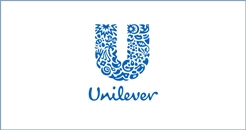 Today's leaders need to commit to a purpose
Today's leaders need to commit to a purpose
William Hesketh Lever was a Congregationalist, born in Bolton, the son of a wholesale grocer. He left school at 16 to join the family firm which he expanded and transformed. In 1884 he decided to focus on just one product - household soap - primarily because of its potential for marketing in pre-wrapped bars under a brand name. Previously soap had to be cut to order from a single large block.
Two years later he began to manufacture soap himself and set up the firm of Lever Brothers with his invalid brother. He initially produced his soap in an existing factory but by 1888 had outgrown the site and moved to a purpose built and much larger building on the Wirral shore of the Mersey. He also built a village to house his employees and named it Port Sunlight after his most successful brand of soap.
Within a few years the interests of his company Lever Brothers stretched from the United Kingdom to West Africa, the Pacific and the United States. The company grew until Lever was employing 85,000 workers around the world in 1925.
The success of his company made Lever very rich. Lever made a large contribution to the lives of ordinary people. He built Port Sunlight to provide his workforce with good housing. He campaigned for better welfare and a shorter working day, and supported building, education and medical projects.
In 1930, Lever Brothers merged with the Van den Berghs margarine company to form Unilever – one of the world’s major multinational companies.
Social impact is deep in the DNA of Unilever as a recent interview of Paul Polman, the CEO of Unilever, by Dan Schawbel, in Forbes magazine shows. They spoke about Paul Polman's personal mission to be a force for good instead of just making a profit, how Unilever is able to serve all their stakeholders and advice for other leaders.
Under Paul's leadership since 2009, Unilever, owner of brands such as Dove, Domestos, Lipton, etc., has an ambitious vision to fully decouple its growth from overall environmental footprint and increase its positive social impact through the Unilever Sustainable Living Plan.
The Plan has 3 big goals:
-
By 2020 help more than a billion people take action to improve their health and well-being;
-
By 2030 halve the environmental footprint of the making and use of Unilever products as they grow the business;
-
By 2020 enhance the livelihoods of millions of people as they grow the business.
Paul is Chairman of the World Business Council for Sustainable Development, a member of the International Business Council of the World Economic Forum, a member of the B Team and sits on the Board of the UN Global Compact and the Consumer Goods Forum, where he co-chairs the Sustainability Committee.
Paul explains why it is his personal mission to be a force for good and not just make a profit, "We have long known about the many challenges we are facing - inequality, poverty, youth unemployment and climate change, just to name a few – and I have always believed that everyone - including business – has a role to play in addressing them.
"Business needs to be part of the solution, not the problem. We cannot be bystanders. We need to be a giver, not a taker in a society that gives us life in the first place. It is – after all - not possible to have a strong, functioning business in a world of increasing inequality, poverty and climate change. The good thing is that, next to our moral obligations to address the global challenges, it is also an enormous business opportunity. That's the equally exciting part.
"Sustainability isn’t just the right thing to do, it is essential to drive business growth. It is very simple: stronger alignment of business with societal interest and planning for the long-term is the only way to guarantee sustained success and longevity, for our business, and for our planet."
Paul continues by explaining how pursuing such a mission serves the needs of both investors, employees and the world at the same time. The Unilever Sustainable Living Plan is directly linked to earnings and returns – it drives growth, reduces costs, mitigates risks and attracts talent. There have not been any trade-offs. There has been a 290 per cent total shareholder return achieved over the last nine years - well ahead of the world index or sector which again shows that responsible business models can go hand in hand with building shareholder value over the longer term.
He then passes on advice to leaders about sustainability, trends and career.
Read the full article here.
If you are involved in business, have you developed such a sustainability plan?
Retweet about this article:
From an article on Forbes, 06/12/2017